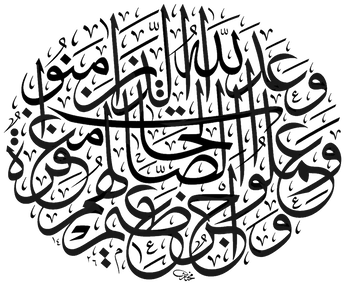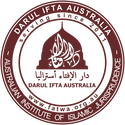Question:
Assalamualaikum
wr wb
Does
the practice of blowing on water after reading certain duas contradict with the
hadith of not blowing into one’s drink or the utensil?
Jazakumullahukhairun
Answer:
بِسْمِ اللهِ الرَّحْمنِ الرَّحِيْم
In the Name of Allah, the Most Gracious, the Most Merciful.
Wa
Alaikumussalamu Wa Rahmatullahi Wa Barakatuh
Firstly,
the hadith that you referred to:
عن ابن عباس،
قال: «نهى رسول الله صلى الله عليه وسلم أن يتنفس في الإناء، أو ينفخ فيه»
Ibn
Abbas (Radiyallahu Anhu) narrates that the Prophet (Sallallaahu Alaihi Wa
Sallam) forbade one to breathe in the utensil or to blow in it. (Abu Dawud)
عن أبي سعيد
الخدري، أنه قال: «نهى رسول الله صلى الله عليه وسلم عن الشرب من ثلمة القدح، وأن
ينفخ في الشراب»
Abu
Sa’eed Al-Khudri (Radiyallahu Anhu) narrates that the the Prophet (Sallallaahu
Alaihi Wa Sallam) forbade one to drink from the broken part of the utensil and
from blowing in the drink. (Ibid)
The
illustrious ulama have mentioned that the reason why it is makrooh to blow on
hot drink to cool it down etc. is that it may cause something repulsive (such
as food particle etc.) to exit one’s mouth and land in the drink and, as a
result, make the entire drink repulsive to him or the others.
On
the other hand, it is narrated in Sahih Muslim and other books that the Prophet
(sallallaahu alaihi wa sallam) used to recite Quranic ayaat of protection and
blow on sick family members. During his final sickness, Aisha (Radiyallaahu
Anha) recited and blew on him and then rubbed his body with his own blessed hands.
It
is also narrated in authentic narrations that the Prophet (sallallaahu alaihi
wa sallam) used to recite the last three surahs of the Holy Quran, blow on his
blessed hands, then rub them on his body.
The
Arabic word used in the narrations above for blowing after reciting is nafath
(نفث). Nafath means
to blow gently without expelling any saliva. The ulama have stated that the
benefit of blowing after reciting duas, azkaar and Quranic ayaat is to acquire
the blessings that accompany the breath and moisture in one’s mouth after
reciting them.
Based
on the above and other similar narrations, the illustrious ulama state that it
is permissible, nay commendable, to blow after reciting duas, azkaar and
Quranic ayaat. This would also include blowing on water after reciting. Besides,
the hadiths that forbid blowing on water use the word nafkh(نفخ) , whereas the hadiths that affirm blowing
after reciting use the word nafath (نفث);
hence, there is no contradiction between the two. The difference between nafkh
and nafath is that nafkh refers to strong blowing (which one
would need to cool down hot drink) whereas nafath refers to blowing
gently in such a way that no saliva is expelled. Strong blowing causes saliva
and, along with it, anything else that may be in the mouth to exit the mouth
and fall in whatever one is blowing on. The same is not true for gentle
blowing.
Furthermore,
Allamah Shaami has mentioned in his Haashiya on Durr Mukhtaar
that the prohibition of blowing on food refers to blowing that makes a sound ,
such as “fffff” etc., meaning that if one blows gently without making any
sound, it will not be makrooh to do so. By extension, the same will apply to
blowing on water.
In
summary, after reciting, if one blows gently on water without making any sound such
as “fffff”, it will be permissible without any karaaha, as there will be
no fear of repulsive particles exiting the mouth and falling in the water, and
the blessings of the recitation will also be imparted to the water.
في شرح سنن ابن ماجه للسيوطي (ص: 245):
لم يكن رَسُول الله صَلَّى اللهُ عَلَيْهِ وَسَلَّمَ ينْفخ فِي الشَّرَاب من اجل
مَا يخَاف ان يَبْدُو من رِيقه شَيْء فِيهِ فَيَتَأَذَّى غَيره ان شربه أَو يخرج
النفخ رَائِحَة ردية تعلق بِالْمَاءِ فيتضرر بهَا آخر وَالْفرق بَين النَّفس
والنفخ ان النفخ يكون لابراد الشَّرَاب أَو لإِزَالَة القذى فقد يخرج من فِيهِ شَيْء
يتَأَذَّى بِهِ واما النَّفس فَهُوَ فِي عين الشّرْب وَالنَّهْي فِيهِ أَيْضا
لهَذَا الْمَعْنى إنْجَاح الْحَاجة
وفي فيض القدير
(6/ 316):
(وأن ينفخ في الشراب) أي المشروب بنحو تنفسه فيه ثم يفصل القدح عن فيه ثم يتنفس
فقد يسقط من ريقه فيه ما يقذره والنفخ في الطعام كهو في الشراب والنفخ أشد كراهة
من التنفس فيه
في صحيح الإمام مسلم:
عن
عائشة، قالت: «كان رسول الله صلى الله عليه وسلم إذا مرض أحد من أهله نفث عليه
بالمعوذات، فلما مرض مرضه الذي مات فيه، جعلت أنفث عليه وأمسحه بيد نفسه، لأنها
كانت أعظم بركة من يدي»
قال الننوي تحته:
والنفث نفخ لطيف بلا ريق فيه استحباب النفث في الرقية
وقد أجمعوا على جوازه واستحبه الجمهور من الصحابة والتابعين ومن بعدهم قال القاضي
وأنكر جماعة النفث والتفل في الرقى وأجازوا فيها النفخ بلا ريق وهذا المذهب والفرق
إنما يجيء على قول ضعيف قيل إن النفث معه ريق قال وقد اختلف العلماء في النفث
والتفل فقيل هما بمعنى ولا يكونان إلا بريق قال أبو عبيد يشترط في التفل ريق يسير
ولايكون في النفث وقيل عكسه قال وسئلت عائشة عن نفث النبي صلى الله عليه وسلم في
الرقية فقالت كما ينفث آكل الزبيب لا ريق معه قال ولااعتبار بما يخرج عليه من بلة
ولايقصد ذلك وقد جاء فىحديث الذي رقى بفاتحة الكتاب فجعل يجمع بزاقه ويتفل والله
أعلم قال القاضي وفائدة التفل التبرك بتلك الرطوبة والهواء والنفس المباشرة للرقية
والذكر الحسن لكن قال كما يتبرك بغسالة ما يكتب من الذكر والأسماء الحسنى وكان
مالك ينفث إذا رقى نفسه
)شرح النووي على
مسلم 14/ 182(
قال ابن عابدين الشامي:
وعن الثاني أنه لا يكره النفخ في الطعام إلا بما له صوت
نحو أف وهو محمل النهي
(رد المحتار: 6/ 340 ط سعيد )
والله تَعَالى أعلم
And
Allah Ta'ala knows best.
Mufti
Faizal Riza
23/01/2022
Darul
Ifta Australia
www.fatwa.org.au



